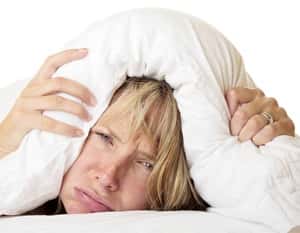
This is a man-bites-dog story that you will probably have a hard time believing. It surprised us, that’s for sure. For years, all we have heard is that a good night’s sleep is essential for good health. If you don’t get adequate amounts of sleep, you risk developing hypertension, obesity, diabetes, heart disease, depression and possibly even dementia. But hold onto your hat. A new data analysis suggests that structured sleep deprivation can actually help lift depression.
Preventing Sleep to Counteract Depression:
Although chronic sleep loss is a problem, short-term sleep deprivation may be an effective anti-depressant for some people. A meta-analysis conducted by researchers at the University of Pennsylvania showed that both partial and total sleep deprivation could reverse depressive symptoms quickly for up to half the patients studied (Journal of Clinical Psychiatry, online Sept 19, 2017).
Partial sleep deprivation is effected by keeping people awake for 20 or 21 hours after just three to four hours of sleep. Total sleep deprivation requires people to stay awake for 36 hours straight. Both tactics appear to be equally effective.
Other Research on Sleep & Depression:
A study carried out in Italy on patients with bipolar disorder combined sleep deprivation, bright light therapy and lithium (Journal of Clinical Psychiatry, Feb. 2014).
The authors concluded that:
“The combination of total sleep deprivation, light therapy, and lithium is able to rapidly decrease depressive suicidality and prompt antidepressant response in drug-resistant depression in the course of bipolar disorder.”
Danish researchers have also reported benefit from what they call sleep abstinence, sleep stabilization or “wake therapy.” Such controlled intervention enhanced medication effectiveness (Danish Medical Journal, April, 2017).
Sleep Deprivation is NOT a DIY Project:
Wake therapy should not be done at home or on your own. A health professional who is experienced in this therapy should be overseeing it. The amount of time that a person receives wake therapy should be limited. Prolonged periods of inadequate sleep can have serious negative consequences, so it really requires a controlled clinical setting and lots of support.

